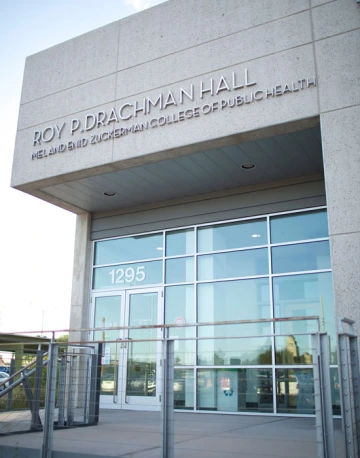One Health
Graduate Certificate
Quick Facts

Top 1%
of all Higher-Ed
Institutions
- Center for World University Rankings, 2024
#1
In Best Value Among
Arizona's Public Universities
- Payscale, 2024
There is a growing need to address the health issues at the human-animal-environment interface. As a One Health program student, you have a chance to become part of a new generation of public health practitioners and professionals who are taking on the health impacts of complex issues such as climate change, infectious diseases and epidemics. Through this program, you will build skills that are essential for assessing and addressing public health problems from a holistic view.
One Health is a relatively new academic discipline that recognizes connections among the health of animals, humans and the environment. New strategies are needed to cope with changing ecosystems that lead to altered patterns of disease transmission. A One Health workforce is in demand to prevent, detect and respond to infectious diseases and epidemics in the U.S. and around the world.
Students in this program may have the opportunity to transfer to the Master of Public Health degree program if the student is admitted to the MPH program and the courses meet degree requirements.
*Residents of some U.S. Territories may not be eligible. Please see our Eligibility & State Authorization page for more information.
This program consists of four courses. The following courses are the core curriculum of the program consisting of nine units. Students may choose their fourth course from a list of approved electives.
This course covers the fundamental tenets of One Health by examining the interconnections between humans, animals and the environment from a multidisciplinary lens. The course is divided into three modules that explore how microorganisms as well as macro-level relationships such as human-animal companionship, agriculture, migration, climate change and the built environment influence health.
This course will examine zoonotic diseases or diseases that can be transmitted from animals to humans, and the challenges and opportunities involved when addressing those diseases from a One Health perspective.
Examine methods and tools used by different disciplines and sectors to understand complex problems. Using case studies, risk assessments, and visual diagrams, students will discuss and evaluate myriad facets of public health problems in order to inform solutions.
Outcomes
Skills
Earning your Graduate Certificate in One Health will build core skills, including:
- Application of One Health principles
- Critical thinking
- Interpersonal skills
- Leadership
- Policy development
- Problem solving
- Program development
- Program evaluation
- Science communication & advocacy
- Scientific writing
- Systems thinking
Potential Career Paths
Graduates of the One Health Graduate Certificate program will be prepared to pursue careers in the following fields:











